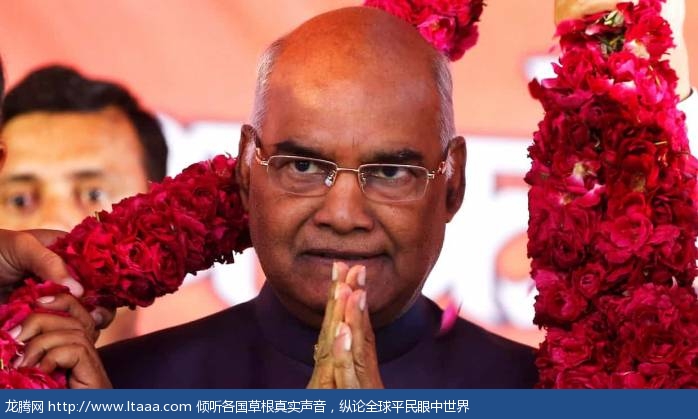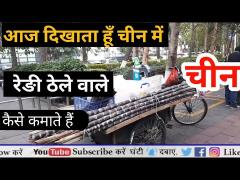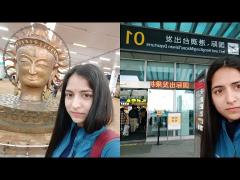英国卫报如何看待来自贱民阶层的印度总统候选人 [印度媒体]
拉姆纳斯可文德是莫迪党派提名的总统候选人。 他来自贱民阶层,这个阶层又被称为不可触摸的阶层, 是印度最受压迫的人群。
Member of India's lowest caste expected to be elected president
印度最低种姓成员有望当选为总统
Ram Nath Kovind, nominee of Narendra Modi’s party, is from dalit (Untouchable) community, the country’s most oppressed。
拉姆纳斯可文德是莫迪党派提名的总统候选人。 他来自贱民阶层,这个阶层又被称为不可触摸的阶层, 是印度最受压迫的人群。
Michael Safi in Delhi Monday 17 July 2017 20.33 AEST Last modified on Tuesday 18 July 2017 07.00 AEST
麦克萨菲于2017年7月17日星期一澳大利亚东部时间20点33分首发, 2017年7月18日星期二早晨7点修改后再发。
A member of India’s poorest and most oppressed caste is expected to be elected president.
印度最贫穷、最受压迫种姓中的一员有望当选印度总统。
Ram Nath Kovind, the governor of Bihar until last month, was announced as the nominee of Narendra Modi’s government in June, in what was widely seen as part of a decades-long strategy by Hindu nationalists to win over members of the dalit (Untouchable) community.
拉姆纳斯可文德在上个月以前一直担任印度东部比哈州(Bihar)的州长。 在今年6月, 他被莫迪政府提名为下届总统候选人。人们普遍认为, 这是印度民族主义者在长达几十年中为赢得贱民(不可触摸)阶层的支持而做出的一系列措施中的一部分。
Nearly 5,000 Indian state and federal members of parliament took part in a secret nationwide ballot on Monday to decide the next president using specially designed violet ink pens with unique serial numbers.
本周一,将近5000名印度州议员与联邦议员参加了全国范围内的秘密投票。 投票的方式是用紫色墨水笔选择独特的系列号码。
The five-year post has significant responsibility under India’s constitution, but similar to other Westminster-style governments, it is largely ceremonial in practice.
印度总统在宪法上承担极大的责任;但是同西方国家政府一样, 在实际运作中这个职位很大程度上是一个象征礼仪性的指位。
The result of the collective parliamentary votes will not be known until Thursday, but Kovind, 71, has secured wide cross-party support and is expected to comfortably beat Meira Kumar, the former diplomat and MP nominated by the opposition Congress party and its allies.
议会的集体投票结果要到星期四才出来。 但是71岁的可文德已经稳赢了两党广泛的支持。 众人认为他有望轻松击败由国大党以及同盟党提名的前外交官、议员梅拉库马。
Kovind and Kumar are dalits, highlighting the community’s symbolic and electoral significance.
可文德和库马都是贱民。 这突出表现了这个阶层在象征层面以及选票层面上的重要性。
Dalits, officially known as scheduled castes, were traditionally thought to fall outside the four castes that determined the shape of Hindu lives, from jobs and diets to marriage prospects.
贱民被官方认定为从事特种行业的种姓,历史上被排除在四大种姓以外。种姓制造成了不同印度教徒在生活方式的各个方面, 从工作到饮食再到婚嫁等存在着很大的差异。
As a result, they were considered “impure” and banished to the periphery of Indian society, suffering thousands of years of exclusion and extreme poverty that affirmative action programmes in the past 70 years have done little to address.
作为种姓划分的结果, 贱民被认为是“不洁”的, 并被驱逐到印度社会的边缘位置,千百年来尽排挤与穷困。 尽管印度在70年代出台了对贱民的优惠政策,实际行动却少之又少。
In historical examples popularised by the dalit leader BR Ambedkar, members of the caste in one village were forced to wear spittoons around their necks to collect their impure saliva, while in another, they had to tie branches to their waists “so as not to leave any unclean footprints”.
有些对贱民迫害的例子由于近代法学家、难民领袖BR阿姆巴德卡的宣传而广为人知。 比如有一个村庄的贱民们被迫在脖子上悬挂痰盂来盛他们不洁的唾液, 另外一个村子的贱民必须要在腰间绑上树枝“来抹去他们不洁的脚印。”
Badri Raina, a Delhi University professor for four decades, said winning dalit support had become essential to the vision of Hindu unity promoted by Modi’s Bharatiya Janata party.
巴德瑞瑞纳是在德里大学工作了40年的教授。 他说赢得贱民支持对于莫迪领导下人民党所倡导的印度教团结一致有着关键的意义。
The BJP argues that India’s culture and institutions are inherently Hindu in nature, a premise that dalits have traditionally eyed with suspicion, seeing in the party’s platform the priorities of the same upper-caste Hindus who oppressed them.
人民党认为印度的文化与制度根植于印度教,而贱民自古以来对印度教都持怀疑态度。 人民党那些曾经压迫过贱民的高种姓印度教徒现在把贱民看作是本党平台的重中之重。
Propelled by canny politics and Modi’s charisma, the BJP has recently made inroads into segments of the dalit community, but faces significant hurdles, especially when it comes to the key party priority of cow protection.
人民党最近在政策投机以及莫迪个人领导力的推动下, 推行了一些侵犯贱民阶层部分民众利益的举措,目前面临巨大障碍, 尤其是在人民党优先考虑的奶牛保护问题上。
“Dalit livelihoods have been predominantly dependent on the cattle industry, both for nutrition and the leather market, yet there, the BJP has made no concessions,” Raina said.
瑞纳教授评论道:“贱民的生活主要依靠畜牧产业, 不仅为了获得营养,也为了维持皮革市场的生意。 然而, 人民党没有做出任何让步。”
In Gujarat last year, seven young dalit men who skinned a dead cow, an “unclean” role traditionally carried out by members of the caste, were filmed being publicly flogged by self-styled cow vigilantes, triggering significant protests.
去年在古吉拉特邦,7名年轻的贱民男子剥取了一头死去奶牛的皮毛。 这是这个种姓成员传统上从事的一种工作。 然而他们遭到了自称为圣牛义务警察的一伙人的鞭打, 有人把这一镜头记录下来, 引发了大规模的抗议活动。
Meat industry regulations introduced in May banning the market sale of cows and other livestock for slaughter are also thought to have hit dalits hardest, along with Muslims, another of India’s poorest social groups.
5月份新发布的肉类产业规定禁止在人们在市场上销售以屠宰为目的的奶牛与其他牲畜。 贱民被认为受到了最沉重的打击。印度另一贫穷族群——穆斯林也受到了打击。
In May, an advance team for the BJP chief minister of Uttar Pradesh, Yogi Adityanath, reportedly gave dalit villagers soap and asked them to clean themselves before an official visit.
另外有报道说, 5月份人民党北方邦主政部长尤吉阿迪添纳斯派出的先行队伍(Uttar Pradesh)给贱民派发肥皂, 让他们把自己洗干净之后再接受部长的正式访问。
If elected, Kovind would be the second dalit president after KR Narayan, who held the post for five years from 1997.
如果可文德当选, 他将成为继KR纳拉亚南之后的第二名贱民总统。 纳拉亚南在1997年当选印度总统,并当政5年。
版权声明
我们致力于传递世界各地老百姓最真实、最直接、最详尽的对中国的看法
【版权与免责声明】如发现内容存在版权问题,烦请提供相关信息发邮件,
我们将及时沟通与处理。本站内容除非来源注明五毛网,否则均为网友转载,涉及言论、版权与本站无关。
本文仅代表作者观点,不代表本站立场。
本文来自网络,如有侵权及时联系本网站。
图文文章RECOMMEND
热门文章HOT NEWS
-
1
चाइना में रेडी और ठेले Local shops in china || L...
- 2
- 3
- 4
- 5
- 6
- 7
- 8
- 9
- 10
推荐文章HOT NEWS
-
1
चाइना में रेडी और ठेले Local shops in china || L...
- 2
- 3
- 4
- 5
- 6
- 7
- 8
- 9
- 10











